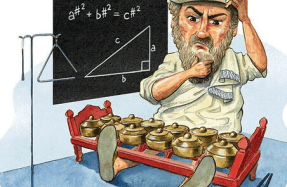
t the podium of Amsterdam’s Concertgebouw, Bernard Haitink raised his baton to begin the evening’s performance. But before the orchestra could play the first notes of Quantz’s patrician G major Flute Concerto, a band of young composers that included a 30-year-old Louis Andriessen began blowing whistles, shaking rattles and throwing about copies of a pamphlet that attacked the elitism of Dutch cultural institutions. Confusingly, the same characters had intervened a few months earlier at the Dutch premiere of Stockhausen’s , an hour-long miasma of sound scored for six amplified singers, held in the same hall. The objection on that occasion wasn’t that the music was too experimental, but that its composer didn’t welcome the participation of audience members inspired to contribute their own vocal effects. As the professionals left




